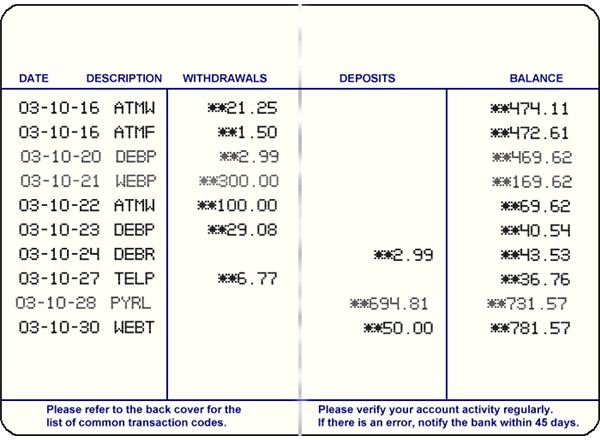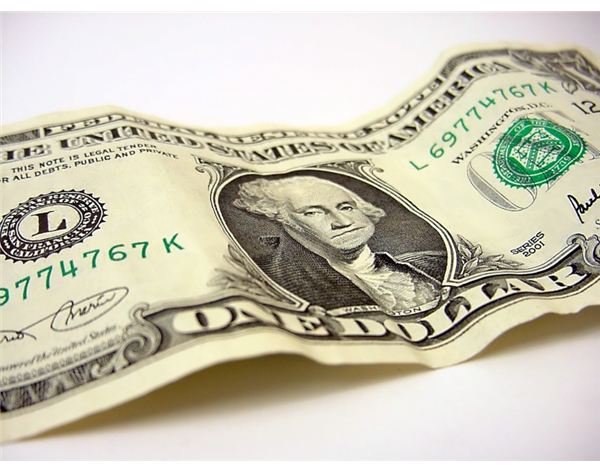Definition of Financial Records: What Are Financial Records and How Long Should You Keep Them?
What Are Financial Records?
I truly believe that some of us (like my husband) have every pay stub and tax return from the time they first got a job or filed an income tax return. In fact, some of us even save home utility bills or other monthly expense records long after they’re needed.
To answer the question what is the definition of financial records, think of all transaction information, whether it be in paper or electronic format, that involves your money or investments as a financial record.
For example, this can mean paychecks you receive, investments you make such as CDs, stocks, bonds or annuities. Your retirement plans and even checking and savings bank records also involve you and your money—past, current, and future, so they are also considered financial records.
Some records that have no cash value currently such as life insurance policies or short or long-term disability policies. These are also financial records that are important to keep.
Image Credit: Dollar US / Wikimedia Commons
How Long Should You Keep Financial Records?

If you pose the question how long should you keep financial records to some people (like my husband), they might say, “forever!” Retirement and tax professionals will tell you differently, however.
UMB Financial Corporation, offers great information on the definition of financial records and how long you should keep them. Here are some of the tips they offer:
- Individual Retirement Accounts (IRA) – These should be saved permanently. The reason this is essential is that by keeping these documents, you and your tax professional will have easy access and a record keeping of withdraws and contributions made for tax filing purposes.
- Tax Returns – Most of us think we should keep these forever, just in case. UMB suggests keeping them three to six years as the IRS has up to three years to audit returns and six years to contest your stated income if they feel you understated income by 25% or more.
- Bank Records – Checking and savings records should be kept one to two years, especially copies of cancelled checks that you may need as proof as deductible expenses for your tax return. Line of credit statements and CD investments from banks should be kept as long as the credit line is open and until the CD matures.
- Retirement Records – The investments you make toward your retirement are also a good definition of financial records. As a rule of thumb, UMB says to keep records of any investments from one year to permanently. The reason for the large gap? Smaller stock and bond investments where you receive quarterly statements are usually only needed for one year when completing your tax returns. Other long-term retirement investments should be kept longer or until you sell investments that reveal capital gains or losses.
- Insurance – No matter the type whether it’s life, long or short-term disability and even credit insurance policies, these should all be kept until they mature or permanently until utilized.
- Income Information – It’s a good idea to keep your pay stubs for one year and then match the information to the W-2 or 1099 you receive. If the stubs match the IRS reporting documents, you can most likely through away the pay stubs, but W-2s, 1099s, and other income source documents should be kept 6 years to permanently.
- Monthly Bills – Do you really need to keep all of your telephone and utility bills forever? UMB says no and suggests throwing away household bills once paid. They do offer, however, that if any monthly bills will be needed to complete your tax return, they should be kept until after the annual return is submitted to the IRS.
- Property – This means land, homes, condos, and any other type of real property investment. These records should be kept permanently or until you sell the real property.
Image Credit: Sample BankBook / Wikimedia Commons
Tips on Financial Records

When considering the definition of financial records, you must also consider how important they are and what information they contain, especially about you personally. Two important tips to help you when and if you want to get rid of old financial records are:
- Shred Them – Invest in a shredder machine to prevent identity theft thieves from obtaining tossed records in a trashcan. If you can’t afford a shredder, some banks offer shred-fests at least annually and will perform this service for free.
- Electronic Records – One thing I do like about my accountant is that every financial record I offer them to prepare my annual tax returns, including the tax returns, are scanned by them and transferred to a CD or DVD in a .pdf format. If you can do this yourself, this is a great idea as it eliminates the need for storing paper records and you can still print out what you need.
Now that you understand the definition of financial records, and how long you should keep your financial information, perhaps it’s time to head to your files and get rid of some of the stuff you don’t need. After all, it will build back up again over time meaning, you need the storage or filing space.
Image Credit: Thumbs Up / Wikimedia Commons
